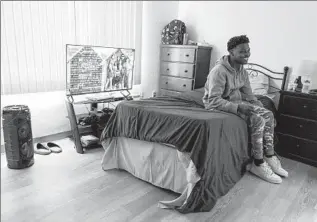In the labyrinth of America’s foster care system, Black and brown children often find themselves ensnared for longer periods, facing systemic disparities that obstruct their path to permanency and stability. As advocates and policymakers grapple with this enduring challenge, calls for systemic reforms resonate louder than ever.
Marcus Adkins, a former caseworker with firsthand experience in impoverished communities, sheds light on the systemic barriers that hinder Black and brown children’s journey through foster care. Despite the tireless efforts of social workers and extended families, these children encounter prolonged stays in the system, often aging out without the security of a forever family.
The heart of the issue lies in the systemic response to the unique needs and challenges faced by Black children in foster care. Placements with families of different races, while well-intentioned, often lack the necessary cultural competence and support to adequately address these challenges. To bridge this gap, equipping foster families with the requisite training, education, and support emerges as a pivotal solution.
Adkins underscores the urgent need for educational campaigns within Black communities to dispel misconceptions about the child welfare system and foster positive representations. Additionally, policy interventions, such as waivers for eligibility requirements and anti-discrimination laws, can dismantle systemic barriers that impede Black families from fostering or adopting.
Investments in recruitment efforts within Black communities, coupled with administrative support and mental health services, aim to bolster participation and retention of Black foster parents. Moreover, initiatives promoting peer support networks and cultural competency education for non-Black families fostering Black children foster an inclusive and nurturing environment.
At the policy forefront, President Biden’s advocacy for a fully refundable adoption tax credit and expansion of parental leave programs signifies a step toward fostering a conducive environment for adoption. However, Adkins underscores the necessity of comprehensive reforms that address the root causes of disproportionate representation of Black children in foster care.
Ultimately, the pursuit of equitable outcomes demands a holistic approach, encompassing multifaceted interventions that not only support children in care but also fortify familial structures to prevent entry into the foster care system. By addressing systemic disparities and nurturing an environment conducive to permanency and well-being, society can pave the way for a brighter future for Black children in foster care.

